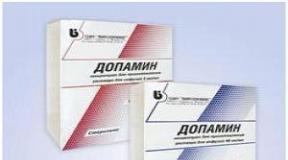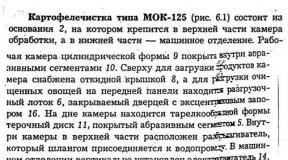Nizhny Novgorod University of Water Transport is official. Volga State Academy of Water Transport. Volga State Academy of Water Transport: reviews
| Volga State Academy of Water Transport (VGAVT) |
|
| Former names |
Gorky Institute of Water Transport Engineers (GIIVT) |
|---|---|
| Year founded | |
| Type |
state |
| President |
Mineev, Valery Ivanovich |
| Rector |
Kuzmichev, Igor Konstantinovich |
| Location | |
| Legal address |
FBOU VPO “VGAVT” |
| Website | |
Volga State Academy of Water Transport- federal budgetary educational institution of higher professional education of the Federal Agency for Maritime and River Transport, the largest industrial educational institution in the Volga-Vyatka region.
Gorky Institute of Water Transport Engineers in 1982

Volga State Academy of Water Transport
Academy history
Established by a resolution of the Council of People's Commissars and the Council of Labor and Defense of the USSR on September 11, 1930 in Gorky as the Gorky Institute of Water Transport Engineers.
In 1993 it was transformed into the Volga State Academy of Water Transport.
One of the academy buildings is located in the building of the former Serafimovsky charity home, built for elderly clergy in 1904-1905 at the expense of the honorary citizen of Nizhny Novgorod Alexander Priezzhev. Construction was carried out under the leadership of the cathedral archpriest Alexei Porfiryev on the territory of the Makaryevskaya almshouse. The building has survived to this day in a modified form: the third floor was added, the belfry and the dome with the cross of the house church were lost, redevelopment was done inside.
General information
The Academy has the right to issue state-issued educational documents, award academic degrees of Candidate of Sciences, and defend doctoral dissertations.
The university has 5 faculties and 27 departments. It includes: 4 branches, 5 secondary specialized educational institutions, a center for training, retraining and advanced training of managers and specialists in water transport, a complex of ship simulators, and a scientific research sector.
At the beginning of 2010, more than eighteen thousand students and cadets study at the academic complex at a time. Over its history, VGAVT (formerly GIIVT) has trained more than 46 thousand specialists.
For summer recreation of employees and students, the academy has a sports and recreation camp “Vodnik” on the coast of the Gorky Sea. To accommodate nonresident students, the academy has 2 dormitories. Since 1984, the Academy has had a sanatorium-preventorium located at the address: st. Rainbow, 10.
The academy has a unique museum of the river fleet. Since 2002, the university has published the newspaper “Aquatoria”.
Faculties
Electromechanical Faculty
Trains engineers in the following specialties: “Operation of ship power plants”, “Operation of ship electrical equipment and automation equipment”, “Operation of transshipment equipment of ports and transport terminals”, “Technical operation of transport radio equipment”. Graduates of the faculty work at enterprises of the Ministry of Transport, in design bureaus, design organizations, and occupy command positions in electromechanical areas at coastal enterprises, shipping companies and basin departments of the route.
Faculty of Shipbuilding, Hydraulic Engineering and Environmental Protection
It trains engineers in the following specialties: “Shipbuilding”, “Hydrotechnical Construction (specialization “Waterways, Ports, Water Transport Facilities and Shelf Structures”)” and “Environmental Protection Engineering”. Graduates of the faculty work in design and engineering organizations, in shipping companies, in basin management departments, in shipbuilding and ship repair plants, and in other industries.
Faculty of Navigation
Prepares engineers with a specialty in “Navigation” to work on sea and river vessels. The educational process is carried out on the basis of modern methods and teaching aids and specialized simulators in full compliance with the requirements of the International Convention on Training, Certification of Seafarers and Watchkeeping. Graduates of the faculty work in Russian and foreign shipping companies, their training meets international and professional requirements, many of them became captains of sea and river vessels, and managers of large shipping companies.
Faculty of Economics and Management
Trains specialists in the following areas: “Finance and credit; “Accounting, analysis and audit”, “Economics and management in a transport enterprise”, “Management of an organization”, “Technology of transport processes”. Faculty graduates work in shipping companies, ports, basin departments of waterways and shipping, in analytical and audit services , in auditing, consulting, and marketing firms. They head banks, tax inspectorates, organizations of various forms of ownership, and are leading specialists in many enterprises in the country.
Faculty of Law
The Faculty aims to satisfy the needs of transport organizations and enterprises, law enforcement agencies in transport for qualified personnel in the specialty “Jurisprudence”. Future lawyers acquire professional skills by undergoing internships in the prosecutor's office, courts, and law firms. Graduates of the faculty work in law enforcement agencies, state and municipal institutions.
Notes
Links
| Portal "Nizhny Novgorod" | |
| Nizhny Novgorod on Wikimedia Commons |
| Educational institutions of Nizhny Novgorod | ||||||||||||||||||||||
|---|---|---|---|---|---|---|---|---|---|---|---|---|---|---|---|---|---|---|---|---|---|---|
|
Vocational education institutions
|
The Volga Academy of Water Transport in Nizhny Novgorod is one of the transport representatives of higher education in the Russian Federation. On September 11, 1930, the Council of People's Commissars, with the participation of the Council of Labor and Defense of the USSR, issued a resolution on its creation. But officially the birthday of the university is considered to be December 17 - the first day of classes at 4 faculties of the Nizhny Novgorod Institute of River Transport Engineers (as it was called then). The founder and owner of the property of VAVT is the Russian Federation.
Business card
At the Volga Academy of Water Transport (Nizhny Novgorod), which has become a state university since 2015, the educational process is carried out according to higher and secondary vocational school programs. At the same time, state and federal educational standards of the II and III generations are being implemented.
Today, more than 6.5 thousand students are studying at the university, and the teaching staff consists of 340 teachers.
Higher education at the university is implemented at the levels:
- specialty - with a period of study of five and five and a half years, within the framework of which, in addition to basic education, in-depth training in the chosen profile is completed;
- bachelor's degree - where the graduate, after 4 years, receives a diploma with a "bachelor's" degree, and fundamental training without a narrow profile is paramount in training;
- Master's programs - with in-depth professional specialization and a duration of study of 2.5 years; The main master's degree is research and analytical work;
- postgraduate studies - postgraduate professional education; its graduates are predominantly engaged in scientific and teaching activities in the country's universities.
Training includes full-time and part-time forms.
Secondary vocational education, which is represented by the Nizhny Novgorod River School named after. Kulibin, provides training after grades 9 and 11 for 2-4 years (depending on the profile).
Academy branches provide training in higher (bachelor's and specialist's) and secondary vocational school programs.

Structure
The Volga Academy of Water Transport in Nizhny Novgorod is a large educational complex, which is represented by three faculties, one institute (IUEIP) and 26 departments.
In addition, VAVT has four branches in Astrakhan, Samara, Kazan and Perm. Secondary vocational education is carried out at the Nizhny Novgorod River School named after. I. P. Kulibina.
Faculties
Students of the Water Academy are taught navigation at the faculty of the same name. Engineers of sea and river vessels are graduated from here. The latest methods and educational tools, practical specialized simulators provide a full-fledged educational process that meets the requirements of the International Convention for the Training and Certification of Seafarers. Thanks to the excellent theoretical and practical basis, graduates of this faculty, in addition to domestic shipping enterprises, are also employed in foreign ones.
At the Faculty of Electromechanics, students become engineers specializing in:
- maintenance of electrical equipment of ships and automatic means;
- operation of transshipment port equipment and transport terminals;
- maintenance of transport radio equipment.
Students of this faculty subsequently find work at enterprises of the Ministry of Transport, in design bureaus, design institutes, and become commanders (in terms of electromechanics) of coastal enterprises, shipping companies and basin railway departments.
Another faculty of the university graduates engineers involved in shipbuilding, hydraulic engineering (waterways, ports, water transport structures) and environmental protection.
In 2016, by merging two faculties, the Institute of Economics, Management and Law was formed, which trains economists, financiers, accountants, managers, logisticians and lawyers. Graduates of the institute are willingly hired by shipping companies and ports; they serve as specialists in large companies providing analytical, auditing, consulting and marketing services. They also become heads of tax services, banks and leading specialists of various Russian enterprises.

Infrastructure
For full-fledged study and leisure of students, the Nizhny Novgorod Academy of Water Transport is equipped with:
- computer classes with modern graphics software;
- multiple laboratories (engineering, shipbuilding, hydraulic engineering, radio navigation, etc.);
- a library with 185 seats and adapted for people with disabilities and people with limited mobility;
- seven food reception points (canteens and buffets);
- medical center.
The sports material and technical base includes eleven gyms (large playrooms, strength training, table tennis, acrobatics and wrestling), as well as the department of physical education and a ski base in the Palace of Culture. Kulibina.
Three dormitories of the Volga Academy of Water Transport (Nizhny Novgorod) with a total area of more than 17 thousand square meters and accommodating 813 people are available to visiting students.
Admission of applicants
In the coming year, this university invites applicants to study in 28 specialties. When recruiting future students to the Volga Academy of Water Transport in Nizhny Novgorod, the admissions committee accepts documents separately:
- for studying directly at the university and its branches;
- by forms of education (full-time and part-time);
- according to educational level programs (bachelor's, specialist's, master's) depending on the profile.
The control figures for the admission of applicants entering on a competitive basis are made up of:
- Quotas for persons with special rights.
- Target reception locations.
- Main vacancies (all number minus quota).
A separate intake of students is carried out for training under an agreement on the provision of paid services.

Budget places
In the 2017 entrance campaign to VAVT, quotas for free education by faculties were distributed as follows:
- navigation - 75 places;
- electromechanics - 235;
- shipbuilding, hydraulic engineering and environmental protection - 110;
- IUEIP - 50.
There were 50 and 20 budget places allocated for master's and postgraduate studies, respectively.
Exams
To enroll in engineering majors at the university, applicants must pass entrance examinations in three disciplines (physics, Russian language and mathematics).
Those who have chosen jurisprudence as a future profession take the Russian language, social studies and history; when entering “Economics” and “Management”, applicants are expected to take: Russian language, mathematics and social studies.

Enrollment stages
Priority for enrollment without entrance exams is assigned to persons with special rights (within the quota). Here we are talking about the prerogative for:
- winners of prizes at the All-Russian Olympiad, members of Russian national teams who took part in international Olympiads;
- winners of prizes at the final stage of all-Ukrainian student Olympiads (from among those recognized as citizens of the Russian Federation);
- winners of prizes at school Olympiads in a specialized discipline. In this category, for admission to the Nizhny Novgorod Academy of Water Transport, schoolchildren must have a passing score of at least 75 based on the Unified State Examination results.
Next in line for admission to the academy (within the appropriate quota) if the exams are successfully passed are applicants of the preferential category. Here priority goes to: disabled children, disabled people of groups 1 and 2, disabled children, orphans and children without parental care.
Well, the third group in order of admission includes applicants who have successfully passed the entrance exams and received points (from 99 to 110).
Paid training
At VAVT, for students who did not qualify for state-funded places, training is provided under an agreement on the provision of paid educational services. The annual cost of training at the Academy of Water Transport (Nizhny Novgorod) varies between 25-70 thousand rubles, depending on the chosen specialization.

When enrolling in the academy, you must pass a special medical commission for the crew. If during the course of his studies a student turns out to be unfit to work as a sailor due to health reasons, he will be transferred to coastal specialization or expelled for medical reasons. This should be taken into account when choosing this university for admission.
Volga State Academy of Water Transport: reviews
VGAVT graduates often speak positively about the quality of the education they received and fondly remember the times spent within the walls of their home university. The advantages include:
- the level of training in technical specialties, which are the hallmark of the academy;
- a good reputation of university graduates, which helps in finding a well-paid job;
- excellent technical and training base, which improves the quality of practical training.
High-quality “technicians”-professionals are trained by the Volga Academy of Water Transport in Nizhny Novgorod. User reviews confirm this, but at the same time clarify that the process of studying at a university is very difficult, the main goal of teachers is to fill students with knowledge and teach them to apply it in real work so as not to tarnish the reputation of the academy. Therefore, graduates advise not to choose this university if you need to get a higher education “for show.” And it is recommended to master the professions of manager, economist and accountant here only if the future place of work is connected with water transport and its infrastructure. Because, in addition to the specialized subjects of this direction, many technical ones are studied, which makes the learning process more complex.

Well, if you dream of becoming a highly qualified engineer, love to learn and are not afraid of difficulties, the admissions office of VGAVT is located in Nizhny Novgorod on Nesterova Street, 5.
| Volga State Academy of Water Transport (VGAVT) |
|
| Former names |
Gorky Institute of Water Transport Engineers (GIIVT) |
|---|---|
| Year founded | |
| Type |
state |
| President |
Mineev, Valery Ivanovich |
| Rector |
Kuzmichev, Igor Konstantinovich |
| Location | |
| Legal address |
FBOU VPO “VGAVT” |
| Website | |
Volga State Academy of Water Transport- federal budgetary educational institution of higher professional education of the Federal Agency for Maritime and River Transport, the largest industrial educational institution in the Volga-Vyatka region.
Gorky Institute of Water Transport Engineers in 1982

Volga State Academy of Water Transport
Academy history
Established by a resolution of the Council of People's Commissars and the Council of Labor and Defense of the USSR on September 11, 1930 in Gorky as the Gorky Institute of Water Transport Engineers.
In 1993 it was transformed into the Volga State Academy of Water Transport.
One of the academy buildings is located in the building of the former Serafimovsky charity home, built for elderly clergy in 1904-1905 at the expense of the honorary citizen of Nizhny Novgorod Alexander Priezzhev. Construction was carried out under the leadership of the cathedral archpriest Alexei Porfiryev on the territory of the Makaryevskaya almshouse. The building has survived to this day in a modified form: the third floor was added, the belfry and the dome with the cross of the house church were lost, redevelopment was done inside.
General information
The Academy has the right to issue state-issued educational documents, award academic degrees of Candidate of Sciences, and defend doctoral dissertations.
The university has 5 faculties and 27 departments. It includes: 4 branches, 5 secondary specialized educational institutions, a center for training, retraining and advanced training of managers and specialists in water transport, a complex of ship simulators, and a scientific research sector.
At the beginning of 2010, more than eighteen thousand students and cadets study at the academic complex at a time. Over its history, VGAVT (formerly GIIVT) has trained more than 46 thousand specialists.
For summer recreation of employees and students, the academy has a sports and recreation camp “Vodnik” on the coast of the Gorky Sea. To accommodate nonresident students, the academy has 2 dormitories. Since 1984, the Academy has had a sanatorium-preventorium located at the address: st. Rainbow, 10.
The academy has a unique museum of the river fleet. Since 2002, the university has published the newspaper “Aquatoria”.
Faculties
Electromechanical Faculty
Trains engineers in the following specialties: “Operation of ship power plants”, “Operation of ship electrical equipment and automation equipment”, “Operation of transshipment equipment of ports and transport terminals”, “Technical operation of transport radio equipment”. Graduates of the faculty work at enterprises of the Ministry of Transport, in design bureaus, design organizations, and occupy command positions in electromechanical areas at coastal enterprises, shipping companies and basin departments of the route.
Faculty of Shipbuilding, Hydraulic Engineering and Environmental Protection
It trains engineers in the following specialties: “Shipbuilding”, “Hydrotechnical Construction (specialization “Waterways, Ports, Water Transport Facilities and Shelf Structures”)” and “Environmental Protection Engineering”. Graduates of the faculty work in design and engineering organizations, in shipping companies, in basin management departments, in shipbuilding and ship repair plants, and in other industries.
Faculty of Navigation
Prepares engineers with a specialty in “Navigation” to work on sea and river vessels. The educational process is carried out on the basis of modern methods and teaching aids and specialized simulators in full compliance with the requirements of the International Convention on Training, Certification of Seafarers and Watchkeeping. Graduates of the faculty work in Russian and foreign shipping companies, their training meets international and professional requirements, many of them became captains of sea and river vessels, and managers of large shipping companies.
Faculty of Economics and Management
Trains specialists in the following areas: “Finance and credit; “Accounting, analysis and audit”, “Economics and management in a transport enterprise”, “Management of an organization”, “Technology of transport processes”. Faculty graduates work in shipping companies, ports, basin departments of waterways and shipping, in analytical and audit services , in auditing, consulting, and marketing firms. They head banks, tax inspectorates, organizations of various forms of ownership, and are leading specialists in many enterprises in the country.
Faculty of Law
The Faculty aims to satisfy the needs of transport organizations and enterprises, law enforcement agencies in transport for qualified personnel in the specialty “Jurisprudence”. Future lawyers acquire professional skills by undergoing internships in the prosecutor's office, courts, and law firms. Graduates of the faculty work in law enforcement agencies, state and municipal institutions.
Notes
Links
| Portal "Nizhny Novgorod" | |
| Nizhny Novgorod on Wikimedia Commons |
| Educational institutions of Nizhny Novgorod | ||||||||||||||||||||||
|---|---|---|---|---|---|---|---|---|---|---|---|---|---|---|---|---|---|---|---|---|---|---|
|
Vocational education institutions
|
| Volga State University of Water Transport
(VSUVT) |
|
|---|---|

|
|
| Former names | Volga State Academy of Water Transport (VGAVT) Gorky Institute of Water Transport Engineers (GIIVT) |
| Year founded | |
| Year of reorganization | |
| Type | State |
| President | Valery Mineev |
| Rector | Igor Kuzmichev |
| Students | ≈ 18 thousand people |
| Professors | 42 people |
| Teachers | 393 people |
| Location | Russia Russia, Nizhny Novgorod |
| Campus | Urban |
| Legal address | 603950, st. Nesterova, 5a |
| Website | vsuwt.ru |
Volga State University of Water Transport (VSUVT) - federal state budgetary educational institution of higher education of the Federal Agency for Maritime and River Transport, the largest industrial educational institution in the Volga-Vyatka region, which includes: four branches, five secondary specialized educational institutions, a center for training, retraining and advanced training of executives and water transport specialists, a complex of ship simulators, and the scientific research sector. At the beginning of 2010, more than eighteen thousand students and cadets study at the academic complex at a time. Over its history, VSUVT (formerly VGAVT, GIIVT) has trained more than 46 thousand specialists.
History of the University[ | ]

Gorky Institute of Water Transport Engineers in 1982
The University has the right to issue state-issued educational documents, award academic degrees of Candidate of Sciences, and defend doctoral dissertations.
The university has 3 faculties, one institute (IUEIP) and 26 departments.
For summer recreation of staff and students, the university has a sports and recreation camp “Vodnik” on the coast of the Gorky Sea.
To accommodate nonresident students, the university has two dormitories.
Since 1984, the university has had a sanatorium-preventorium located at the address: st. Raduzhnaya, 10.
Since 2002, the university has published the newspaper “Aquatoria”.
The university has a unique river fleet museum.
One of the university buildings is located in the building of the former Serafimovsky charity home, built for elderly clergy in 1904-1905 at the expense of the honorary citizen of Nizhny Novgorod Alexander Priezzhev. Construction was carried out under the leadership of the cathedral archpriest Alexei Porfiryev on the territory of the Makaryevskaya almshouse. The building has survived to this day in a modified form: the third floor was added, the belfry and the dome with the cross of the house church were lost, redevelopment was done inside.
Faculties [ | ]
Faculty of NavigationPrepares engineers with a specialty in “Navigation” to work on sea and river vessels. The educational process is carried out on the basis of modern methods and teaching aids and specialized simulators in full compliance with the requirements of the International Convention on Training, Certification of Seafarers and Watchkeeping. Graduates of the faculty work in Russian and foreign shipping companies, their training meets international and professional requirements, many of them became captains of sea and river vessels, and managers of large shipping companies.
Electromechanical Faculty
Trains engineers in the following specialties: “Operation of ship power plants”, “Operation of ship electrical equipment and automation equipment”, “Operation of transshipment equipment of ports and transport terminals”, “Technical operation of transport radio equipment”. Graduates of the faculty work at enterprises of the Ministry of Transport, in design bureaus, design organizations, and occupy command positions in electromechanical areas at coastal enterprises, shipping companies and basin departments of the route.
Faculty of Shipbuilding, Hydraulic Engineering and Environmental Protection
It trains engineers in the following specialties: “Shipbuilding”, “Hydraulic Engineering (specialization “Waterways, ports, water transport structures and structures on the sea shelf”)” and “Engineering environmental protection”. Graduates of the faculty work in design and engineering organizations, in shipping companies, in basin management departments, in shipbuilding and ship repair plants, and in other industries.
Institute of Economics, Management and Law (IEMiP)
Established on September 1, 2016 on the basis of the Faculty of Economics and Management and the Faculty of Law. It trains specialists in the following areas: “Finance and Credit”, “Accounting, Analysis and Audit”, “Economics and Management in a Transport Enterprise”, “Organization Management”, “Organization of Transportation and Management in Transport”, “Jurisprudence”. Graduates work in shipping companies, ports, basin waterways and shipping departments, in analytical and audit services, in auditing, consulting, and marketing firms. They head banks, tax inspectorates, organizations of various forms of ownership, and are leading specialists in many enterprises in the country. Law graduates work in law enforcement agencies, state and municipal institutions.
Volga State University of Water Transport (VSUVT) - federal state budgetary educational institution of higher education of the Federal Agency for Maritime and River Transport, the largest industrial educational institution in the Volga-Vyatka region, which includes: four branches, five secondary specialized educational institutions, a center for training, retraining and advanced training of executives and water transport specialists, a complex of ship simulators, and the scientific research sector. At the beginning of 2010, more than eighteen thousand students and cadets study at the academic complex at a time. Over its history, VSUVT (formerly VGAVT, GIIVT) has trained more than 46 thousand specialists.
| Volga State University of Water Transport
(VSUVT) |
|
|---|---|

|
|
| Former names | Volga State Academy of Water Transport (VGAVT) Gorky Institute of Water Transport Engineers (GIIVT) |
| Year founded | |
| Year of reorganization | |
| Type | State |
| President | Valery Mineev |
| Rector | Igor Kuzmichev |
| Students | ≈ 18 thousand people |
| Professors | 42 people |
| Teachers | 393 people |
| Location | Russia Russia, Nizhny Novgorod |
| Campus | Urban |
| Legal address | 603950, st. Nesterova, 5a |
| Website | vsuwt.ru |
History of the University
The University has the right to issue state-issued educational documents, award academic degrees of Candidate of Sciences, and defend doctoral dissertations.
The university has 3 faculties, one institute (IUEIP) and 26 departments.
For summer recreation of staff and students, the university has a sports and recreation camp “Vodnik” on the coast of the Gorky Sea.
To accommodate nonresident students, the university has two dormitories.
Since 1984, the university has had a sanatorium-preventorium located at the address: st. Raduzhnaya, 10.
Since 2002, the university has published the newspaper “Aquatoria”.
The university has a unique river fleet museum.
One of the university buildings is located in the building of the former Serafimovsky charity home, built for elderly clergy in 1904-1905 at the expense of the honorary citizen of Nizhny Novgorod Alexander Priezzhev. Construction was carried out under the leadership of the cathedral archpriest Alexei Porfiryev on the territory of the Makaryevskaya almshouse. The building has survived to this day in a modified form: the third floor was added, the belfry and the dome with the cross of the house church were lost, redevelopment was done inside.
Faculties
Faculty of Navigation
Prepares engineers with a specialty in “Navigation” to work on sea and river vessels. The educational process is carried out on the basis of modern methods and teaching aids and specialized simulators in full compliance with the requirements of the International Convention on Training, Certification of Seafarers and Watchkeeping. Graduates of the faculty work in Russian and foreign shipping companies, their training meets international and professional requirements, many of them became captains of sea and river vessels, and managers of large shipping companies.
Electromechanical Faculty
Trains engineers in the following specialties: “Operation of ship power plants”, “Operation of ship electrical equipment and automation equipment”, “Operation of transshipment equipment of ports and transport terminals”, “Technical operation of transport radio equipment”. Graduates of the faculty work at enterprises of the Ministry of Transport, in design bureaus, design organizations, and occupy command positions in electromechanical areas at coastal enterprises, shipping companies and basin departments of the route.
Faculty of Shipbuilding, Hydraulic Engineering and Environmental Protection
It trains engineers in the following specialties: “Shipbuilding”, “Hydraulic Engineering (specialization “Waterways, ports, water transport structures and structures on the sea shelf”)” and “Engineering environmental protection”. Graduates of the faculty work in design and engineering organizations, in shipping companies, in basin management departments, in shipbuilding and ship repair plants, and in other industries.
Institute of Economics, Management and Law (IEMiP)
Established on September 1, 2016 on the basis of the Faculty of Economics and Management and the Faculty of Law. It trains specialists in the following areas: “Finance and Credit”, “Accounting, Analysis and Audit”, “Economics and Management in a Transport Enterprise”, “Organization Management”, “Organization of Transportation and Management in Transport”, “Jurisprudence”. Graduates work in shipping companies, ports, basin waterways and shipping departments, in analytical and audit services, in auditing, consulting, and marketing firms. They head banks, tax inspectorates, organizations of various forms of ownership, and are leading specialists in many enterprises in the country. Law graduates work in law enforcement agencies, state and municipal institutions.



















